A meeting of minds in Warsaw
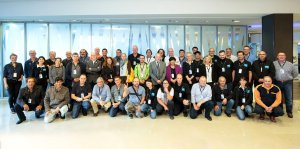
The 2016 Congress for the low impact fisheries organized
by the European platform LIFE
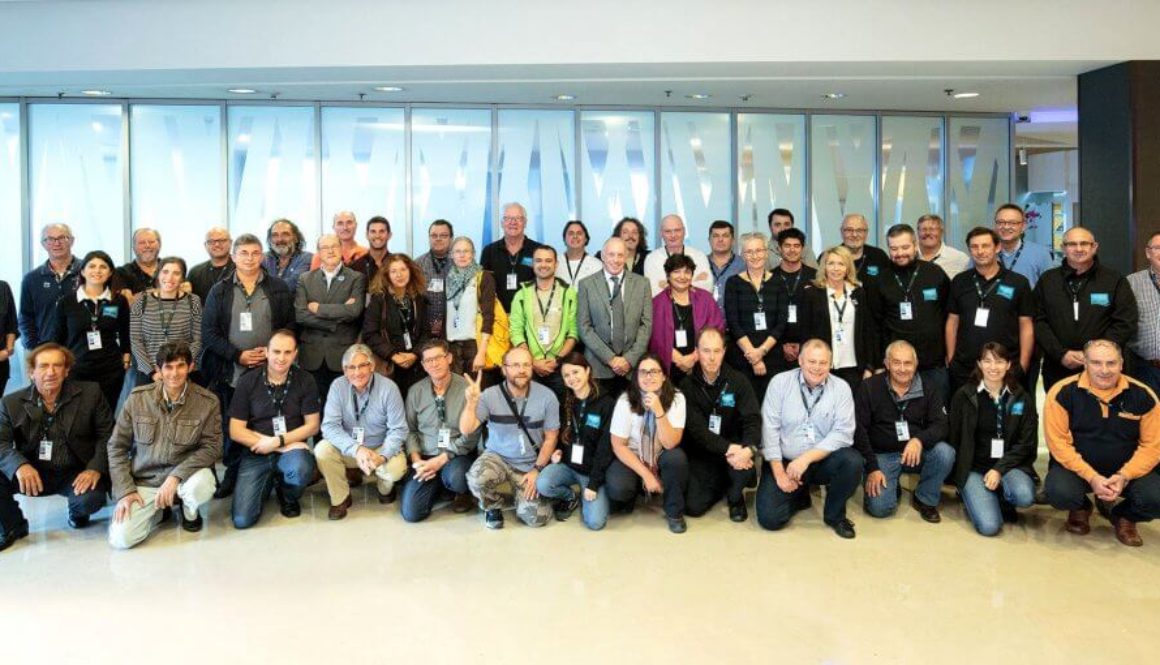

The 2016 Congress for the low impact fisheries organized
by the European platform LIFE
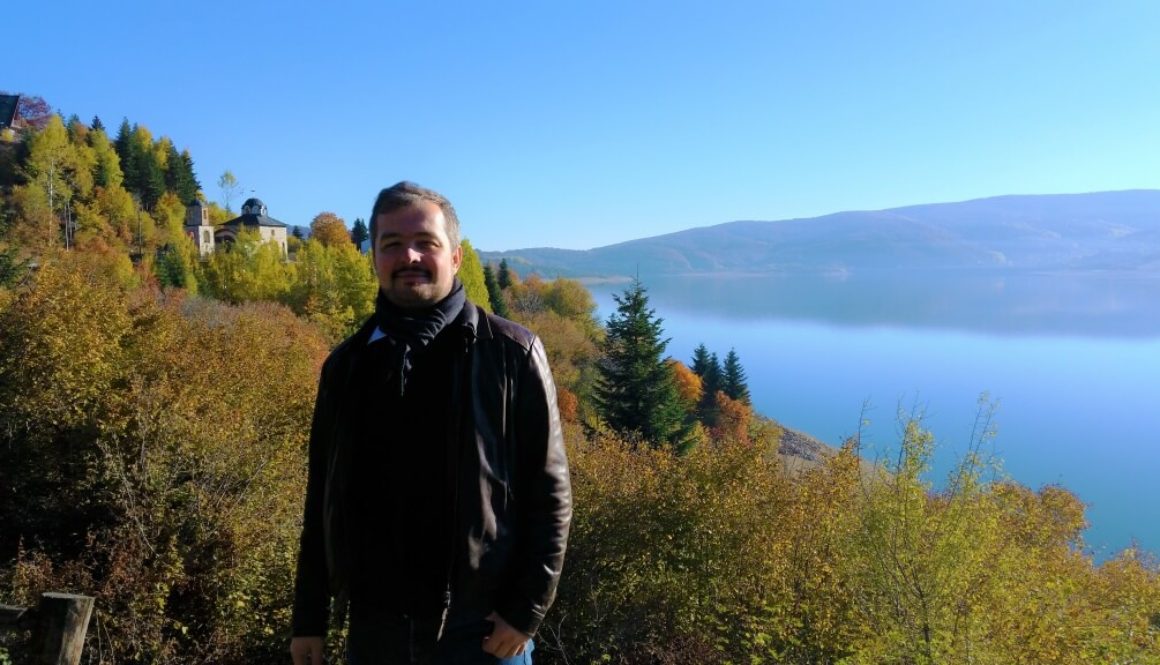
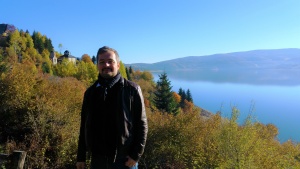
Brussels, 12 July 2016
Claudia Orlandini
LIFE Platform
The Low Impact Fishers of Europe have recently been granted funds by the European Commission to provide additional support to the low impact small-scale fleet working in the Baltic and North Sea. The first step of the two-years project has been recruiting a new member of staff to design and implement a specific strategy for the Region, coordinate the work between members, help local communities to set up new organisations and liaise with relevant institutions.
After a tough selection process, thanks to his extensive experience in fisheries management, high level language skills and most of all great enthusiasm, Marcin has been selected by the Board of Directors to become the new Coordinator! Learn more about him in our welcome interview!
Hello Marcin, and welcome to LIFE! How did you learn about the Platform and what motivated you to apply?
I have learned about the LIFE initiative back in 2012, in the midst of the CFP reform process. I was impressed by the synergy between promoting small-scale fisheries and conserving the environment, which LIFE so nicely encapsulates. As far as I know, no other fisheries or marine environment organisation in Europe does that. Also Jerry’s decades-long background as a professional small-scale fisherman makes the organization special. At a personal level, I needed a change from a civil servant’s life to something a bit more modern and very exciting!
You have more than 10 years of experience in the fisheries sector, with a special focus on Baltic and North Sea Countries. What are, according to you, the biggest challenges for the small-scale sector in the Region?
I think the challenges are best summarized by the word « competition », which has many facets here, such as:
In all these areas, I’ll do my best to be of help for small-scale low impact fishers of Baltic and North Sea!
You have worked both as Chair of the Fisheries Working Party of EU Council and Chair of Baltfish and Helcom Fish. Based on your experience, why is it important to bring the voice of small-scale fishers at institutional level, and how can this have an impact on the everyday life of coastal communities?
LIFE rightly points out that the 83% of Europe fishers are small-scale. Small-scale means, among others, being occupied with (or-overwhelmed by…) your business and making a decent living (or-a living…) in a highly competitive environment.
There’s very little or no time left for small scale fishers to successfully voice their concerns or make strong policy proposals at national or European level. The decision-makers in Brussels or national capitals are usually assisted by those voicing the concerns of larger-scale fleets, who can afford being professionally represented in the right places.
To be sure: there’s nothing wrong with that – as long as decision-makers have the full picture, including the knowledge of what small-scale fishers think and want. That’s why I think that what LIFE does has so much relevance. And I am happy to contribute to this process personally. It will surely result in CFP rules being more tailored to small-scale fishers’ needs.
As the new Coordinator for the Baltic and North Sea, what will be your priorities and strategy to reinforce the network between the fishers of the Baltic and North Sea?
I basically see two main priorities: understand in-depth main concerns of small-scale fishers of Baltic and North Sea through intensive contacts, and then taking these concerns to the right fora and people with the decision-making system, at EU or national level.
I hope that, if the fishers’ concerns are taken into account by the decision-makers, the benefits of being part of LIFE will become self-evident. This would, hopefully help in expanding our regional network. Being just a few days in a new position, one has to assume some flexibility and patience as to how these priorities are implemented in detail.
Selling the product at a fair price is vital for small-scale producers. According to you what is the place of small-scale businesses within the bigger market? What is the role of consumers’ education in this respect?
Luckily, the markets for fish are quite diverse and have many different segments. Not all of us like Pangasius, right? I think that, from the small-scale fishers’ perspective, it is important to define the best market niche for them and do everything possible to establish strong presence within it. There is a number of clear advantages of the product offered by small-scale fishers: it’s super-fresh, it’s caught sustainably and low-impact, it’s local, it’s traditional. Just how to exploit these advantages in local conditions of say, Southern Sweden, Schleswig-Holstein, Northern Poland, The Netherlands, Bornholm, Mecklemburg-Vorpommern or Baltic States – we need to see. There are encouraging examples from some of these regions, often using most modern technologies to quickly reach the consumer willing to pay extra for top-quality fish.
I am sure LIFE has lots of work to do here. The key point of departure must be: fishing for value, as opposed to fishing for volume.
Part of your role is meeting with fishing communities, listening to their problems and advocating for their rights where decisions are made. Did you already plan which will be the first communities that you are going to meet?
My plans are focused on the agendas of the upcoming BSAC and BALTFISH meetings. We have a crisis situation with the Western Baltic cod stock, where ICES is advising a cut in fishing opportunities of 93%! This needs urgent attention and strong response from LIFE. Livelihoods of our Members are at stake here. We also need to keep a weather eye on the Eastern cod stock, where scientists can’t get out of uncertainty for too long – and we must avoid repeating the Western cod situation at all cost. My intention is to personally meet all the LIFE Members, in the time and the format that’s most appropriate for them!
♦ ♦ ♦
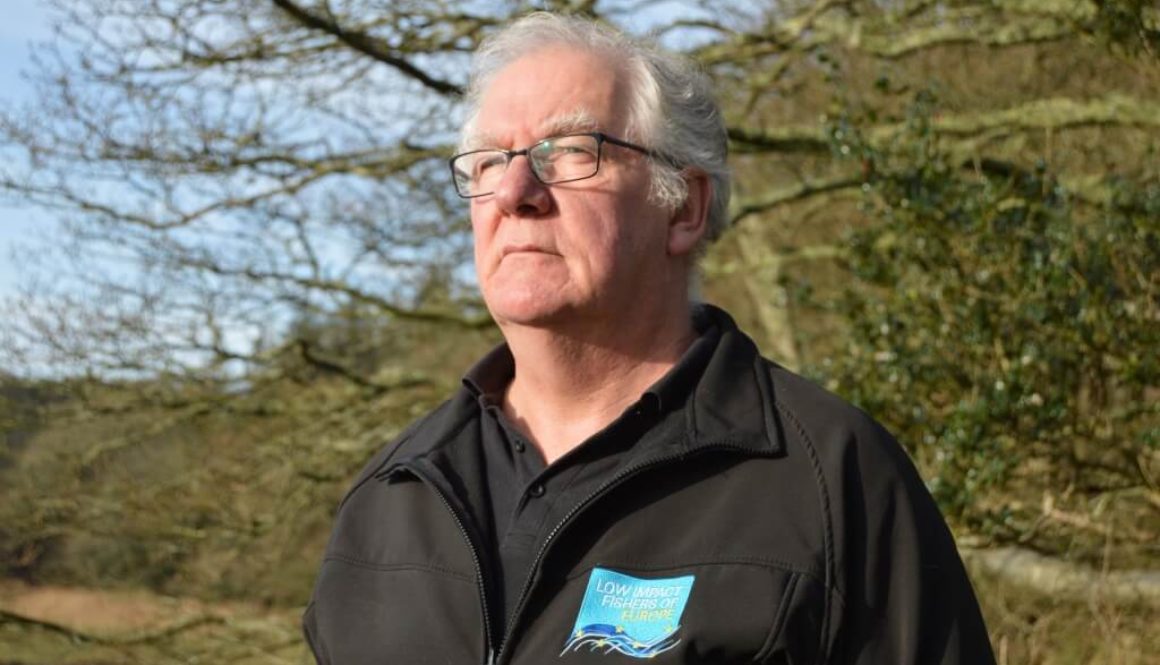
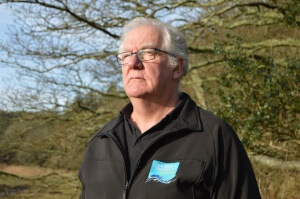
Bristol, 7th of June 2016
Jeremy Percy
The fish in the sea are a public resource and provide not only a vital source of protein and nutrients for billions of people globally but also 60 million jobs in the primary sector, 90% of them in small scale fishing and 15% of them women.
Closer to home, the European fishing fleet comprises some 83,734 vessels, supporting 150,000 seagoing jobs and at least three times that many in related shore based employment.
Four out of every five [80%] fishing vessels within the European fishing fleet are deemed to be ‘small scale’ [under 12 metres in length and not using towed gear].
So far, so good but the statistics above tell only a very small part of the story.
From the Atlantic to the Black Sea and from the Baltic to the Mediterranean, historic gross overfishing at the end of the last century and the beginning of this one resulted in the dramatic reduction of not only fish stocks but also many of the fishermen who relied upon them. As we all know, this was equally the case for both fisheries and fishermen on a global basis and in many cases, stocks are only now beginning to recover, if at all.
This environmental catastrophe resulted in a public outcry and fishermen, once heroes of their communities becoming branded as ‘pirates’, pillaging the seas with no thought for the future.
What this furor failed to recognize was that almost without exception, the overfishing was not the fault of the 80% of the fleet that is small scale. The clue is in the title, as those fishing on a small scale would struggle to overfish on a widespread basis, due to their, yes, you guessed it, small scale. Importantly, small scale fishers are simply unable to steam away to new fishing areas if they denude their local grounds, making it vital for them to look after what they have.
So despite making up 80% of the fleet by number, being stewards of the sea and using low impact, selective fishing gears to provide the highest possible quality fresh fish and shellfish, small scale fishers have never been able to make their voice heard where it counts, at Member State and European levels. This has resulted in past fishing policies being influenced only by the larger scale, better resourced and organised sector of the fleet, often to the detriment of the smaller scale sector.
Commercial fishing in European waters is managed through the Common Fisheries Policy [CFP]. This Regulation is reformed every ten years and despite the best of intentions, has overseen the aforementioned reduction in both fish stocks and fishing related employment over many decades.
It was generally considered that the last reform process, that began in 2009 and resulted in the new CFP beginning in 2014 was really the last chance for getting it right. It would take a series of articles to explain the detail of such a regulation but suffice it to say that for the first time, two major changes to the process occurred. Firstly, the Lisbon Treaty ushered in co-decision making. This meant that members of the European Parliament had the chance to influence the outcome of the reform process and secondly, smaller scale fishers and their representatives, with support from environmental NGO’s too numerous to list, worked hard to make their voice heard as well.
The combination of these two elements undoubtedly had a major and very largely positive effect on the outcome of the reform process.
The new CFP and related regulations refer to the provision of; a fair standard of living for the fisheries sector including small-scale fisheries; preferential access for small-scale, artisanal or coastal fishermen; in Member States where over 1 000 vessels can be considered small-scale coastal fishing vessels, an action plan for the development, competitiveness and sustainability of small-scale coastal fishing; incentives, including those of an economic nature, such as fishing opportunities, to promote fishing methods that contribute to more selective fishing ………. and to fishing with low impact on the marine ecosystem and fishery resources; and when allocating the fishing opportunities available to them… Member States shall use transparent and objective criteria including those of an environmental, social and economic nature.
So far so good, again.
But what became immediately clear following the introduction of the new CFP was that the genuine implementation of the measures was going to be at least as important as their original conception.
Recognising this fact and building on the momentum created by small scale fishermen having been able to come together and speak with one voice during the reform process, these same fishermen, and many others who saw the urgent need to maintain and improve the ability of their sector to be heard, formed a Core Team from where the LIFE Platform was created.
The primary aim of LIFE, the Low Impact Fishers of Europe is to provide a clear and coherent voice at an EU level for the previously silent majority of European fishers who are smaller scale and who use low impact fishing gears and methods but have historically lacked dedicated and effective representation in Brussels and even at Member State level.
Incorporated as an organisation in May 2014, LIFE is an organisations of organisations, run by fishermen, for fishermen. The operation of LIFE is via a management Board of working small scale fishermen across Europe who are all representatives of their local fishing communities. LIFE employs an Executive Director, ably supported by staff members based in the LIFE offices in Brussels and regional Coordinators currently covering the North Sea, Baltic and Mediterranean areas.
LIFE members incorporate those fishers who tend to be smaller scale and have a generally low environmental impact but who at the same time have a high social and economic value to the communities they support and who support them. The owner will usually work aboard, they undertake mainly day trips, they have low greenhouse gas emissions per kilo of fish landed and they fish in a sustainable manner.
By now I hope that readers understand that small scale low impact fishing is not just about catching fish, or even only about the men and women who routinely work in the most dangerous environment in the world to deliver fresh fish to the table. [fishing still accounts for more injuries and deaths than any other industrial sector]. It is about so much more; our fishers observe and care for the sea every day of their working lives; they are often at the heart of environmental programmes and initiatives; they keep alive the culture and traditions stretching back over a 1000 years; they are a receptacle for countless generations of knowledge and skills that once lost, will never be regained and importantly, they are often the backbone of vulnerable coastal communities, supporting and supported by them, maintaining jobs, both at sea and ashore where often no other work is available, as well as providing the freshest fish possible.
So you might ask yourself why their numbers are reducing year on year, why are they still often marginalised, why are their profit margins often negative whereas larger scale profits are soaring and what can be done about it?
The creation of LIFE is a first step on a long road to recognition for small scale, low impact fishers in Europe. From a standing start in 2014, LIFE already has well over 7000 members, working over 4000 vessels and based in any one of 14 coastal Member States.
Referring back to the reformed CFP, just one example of the change needed to ensure the sustainable development of the small scale fishing sector in Europe is encapsulated in the aims of Article 17.
Historically, access to the fish in the sea, at least for most European fishermen, has been through the provision of an allocation of fish quota, a share of the national allowance, based on historic catch records.
The problem with this approach for small scale fishers is that they have often lacked the requirement or systems to record their catches whereas larger scale vessel operators were provided with log books to detail what they landed. In some cases, these log book landings were inflated to increase access to future fishing opportunities. This method clearly rewards those who have fished the most, and in some cases too much, whilst leaving the small scale fleet out of the process. This in turn provides very significant resources, and therefore influence to larger scale fishermen and underpins a vicious circle of a lack of resources, leading to a lack of influence of fisheries policy leading to a consolidation of quota in the hands of the bigger players. In the UK for example, whilst the small scale sector represents 77% of the fleet by number, it has access to only 1.5% of the UK quota by tonnage.
This situation has been exacerbated in recent times through quota becoming just another commodity to be bought and sold. The current trade in quota, together with well meaning but dangerous initiatives to effectively further privatise the fish in our seas means that small scale fishers are often left standing on the harbour wall, unable to catch the fish that swim past them whilst large, often foreign owned vessels, utilising national quota that they have bought or acquired through apparently past catch records carry on fishing.
Article 17 of the CFP requires member states to include criteria of an environmental, social and economic nature when allocating access to fish quota. If governments took this approach seriously, rather than only paying lip service to it, if at all then it would revolutionise the industry very quickly. It would reward any vessel or group of vessels that were seen to be fishing sustainably and who provided significant social and economic benefits but until this happens then the system will continue to reward those who fish the most, rather than those who fish the most sustainably.
You would have thought that this approach was simply common sense and not least as we are talking about a public resource, albeit one that has been effectively privatised and given away to a relatively small group of people. Unfortunately, unless and until the public start demanding that this Article is genuinely implemented then I’m afraid that nothing will change.
In conclusion, smaller scale fishermen and women are not a problem to be ignored but with recognition, support and fair access to resources, can be a solution to some of the many problems facing the marine environment today. In this way, we can provide more jobs not less, more fish not less and thereby maintain the structure of often vulnerable coastal communities and the culture, traditions and values of the fishers who are an integral part of them.
♦♦♦
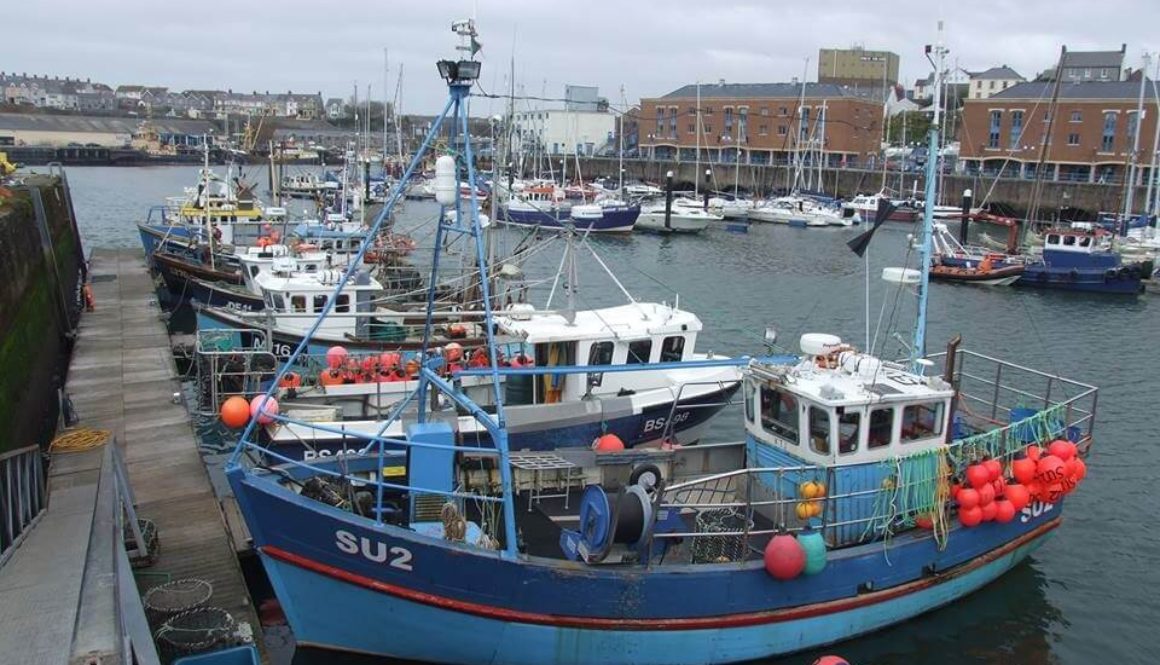
DIE WICHTIGSTEN EREIGNISSE DES MONATS
Treffen mit DG Mare zur Lage in der Ostsee
Am 4. März organisierte LIFE ein Treffen mit der Generaldirektion für maritime Angelegenheiten und Fischerei der Europäis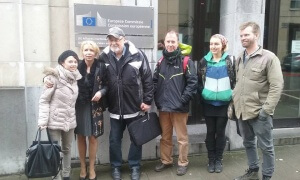 chen Kommission (DG Mare), um Anliegen und Probleme der kleinen Fischereibetriebe in der westlichen Ostsee zu besprechen. An der Besprechung haben Mitarbeiter des LIFE Büros in Brüssel, Wolfgang Albrecht (LIFE Vorstandsmitglied, Deutschland), Katarzyna Wysocka (LIFE Vorstandsmitglied, Polen), David Lange und Hanne Lyng Winter (als Vertreter und Vertreterin von FSK – Dänemark, ein Mitglied von LIFE) teilgenommen. Das Meeting wurde vom DG Mare ausgerichtet, für das Bernhard Friess, Leiter des Direktorats C (Atlantik) und ausführender Leiter des Direktorats E (Ostsee) sowie dessen Mitarbeiter vor Ort waren.
chen Kommission (DG Mare), um Anliegen und Probleme der kleinen Fischereibetriebe in der westlichen Ostsee zu besprechen. An der Besprechung haben Mitarbeiter des LIFE Büros in Brüssel, Wolfgang Albrecht (LIFE Vorstandsmitglied, Deutschland), Katarzyna Wysocka (LIFE Vorstandsmitglied, Polen), David Lange und Hanne Lyng Winter (als Vertreter und Vertreterin von FSK – Dänemark, ein Mitglied von LIFE) teilgenommen. Das Meeting wurde vom DG Mare ausgerichtet, für das Bernhard Friess, Leiter des Direktorats C (Atlantik) und ausführender Leiter des Direktorats E (Ostsee) sowie dessen Mitarbeiter vor Ort waren.
Diskutiert wurden die Fischbestände, die Schließung der Dorschfischerei, Selektivität und Beifang in der Schleppnetzfischerei, Ausnahmen für die industrielle Fischerei, die faire Behandlung von kleinen Fischereibetrieben sowie die Teilnahme von nachhaltigen, kleinen Fischereibetrieben an Beiräten. Insgesamt war das Treffen sehr produktiv, Bernhard Friess schlug vor, regelmäßige Besprechungen mit LIFE und dessen Mitgliedern abzuhalten um einen Austausch zu wichtigen Anliegen und Problembereichen zu etablieren.
Die GFCM Regionalkonferenz „Die Zukunft für nachhaltige, kleine Fischereibetriebe in der Mittel- und Schwarzmeerregion gestalten”
LIFE Mitarbeiter nahmen an der Regionalkonferenz über kleine Fischereibetriebe in der Mittel- und Schwarzmeerregion teil, die von der General Fisheries Commission for the Mediterranean (GFCM “Allgemeine Kommission für Fischerei im Mittelmeer”) in Kooperation mit der FAO und der algerischen Regierung organisiert wurde (http://www.fao.org/gfcm/meetings/ssfconference2016/en/ ). GFCM ist die regionale Organisation für Fischereimanagement („Regional Fisheries Management Organization“ (RFMO)), die für das Mittelmeer und das Schwarze Meer zuständig ist.
Hauptthema war die Sicherung einer nachhaltigen Zukunft für kleine Fischer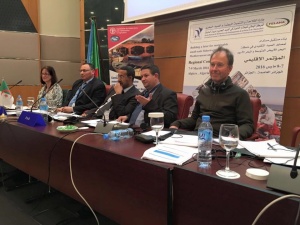 eibetriebe im Mittelmeer, im Kontext der Strategie “Blaues Wachstum”. Andere Themen waren die Mitbestimmung, Meeresschutzgebiete („Marine Protected Areas“ – MPAs), die Rolle kleiner Fischereibetriebe in der Wertschöpfungskette sowie die Implementierung der freiwilligen Richtlinien zur Sicherstellung kleiner Fischereibetriebe (Voluntary Guidelines for Securing Sustainable Small-Scale Fisheries (SSF Guidelines)). Brian O’Riordan, LIFEs Geschäftsführer, hielt einen Vortrag zu den Auswirkungen der Reformen der Gemeinsamen Fischereipolitik auf nachhaltige, kleine Fischereibetriebe und Marta Cavallé, LIFEs Mittelmeerkoordinatorin wurde vom offiziellen Medienteam des Events interviewt.
eibetriebe im Mittelmeer, im Kontext der Strategie “Blaues Wachstum”. Andere Themen waren die Mitbestimmung, Meeresschutzgebiete („Marine Protected Areas“ – MPAs), die Rolle kleiner Fischereibetriebe in der Wertschöpfungskette sowie die Implementierung der freiwilligen Richtlinien zur Sicherstellung kleiner Fischereibetriebe (Voluntary Guidelines for Securing Sustainable Small-Scale Fisheries (SSF Guidelines)). Brian O’Riordan, LIFEs Geschäftsführer, hielt einen Vortrag zu den Auswirkungen der Reformen der Gemeinsamen Fischereipolitik auf nachhaltige, kleine Fischereibetriebe und Marta Cavallé, LIFEs Mittelmeerkoordinatorin wurde vom offiziellen Medienteam des Events interviewt.
Die Konferenz ermöglichte LIFE außerdem mit wichtigen Entscheidungsträgern, internationalen Stakeholdern und Fischern aus Nordafrika in Kontakt zu treten. LIFE konnte eine Reihe von Treffen vereinbaren, um so die Mittelmeerstrategie voranzutreiben.
Treffen mit der Regierung des Vereinigten Königreichs
LIFE hat in letzter Zeit eng mit Amber Rudd, Staatssekretärin für Energie und Klimawandel sowie Parlamentsabgeordnete für Hastings und Rye an der englischen Südostküste, zusammengearbeitet um ein Treffen zwischen einer unserer Mitgliederorganisationen im Vereinigten Königreich, New Under Ten Fishermen’s Association (NUTFA, www.nutfa.org ), der Erzeugerorganisation „Coastal PO“ ( http://fish.coop/ ) und dem Minister für Ernährung, Landwirtschaft und Meeresumwelt, George Eustice (Parlamentsabgeordneter) zu ermöglichen.
Das Treffen fand am 10. März statt, Jerry Percy, LIFEs Geschäftsführer, nahm daran teil.
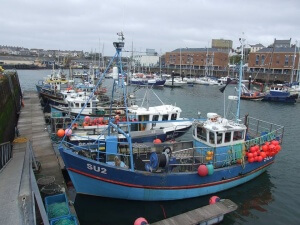
Besprochen wurde unter anderem die heikle Entscheidung der Regierung des Vereinigten Königreichs die Fanglizenzen für Fahrzeuge bis zu zehn Meter, die während einem bestimmten Zeitraum weniger als 350 kg an Quoten unterliegenden Arten gefangen haben, zu deckeln. Außerdem wurden folgende Themen diskutiert: Die ungenutzten Kapazitäten im Sektor; der zukünftige Umgang mit Barsch im Hinblick auf die Auswirkungen der zuletzt eingeführten zusätzlichen Kontrollen; das Ausmaß der Quotenerhöhung, die das Fischereiministerium aufgrund der von NUTFA ergriffenen Maßnahmen gewährte; sowie die überflüssige Anwendung von Vorschriften über die Zusammensetzung der Fänge auf Küstenflotten.
Trotz der unbefriedigenden Situation in Bezug auf das Problem der ungenutzten Kapazitäten, war das Meeting insgesamt ein Erfolg. Der Minister bekundete besondere Unterstützung für die Initiative der Küstenerzeugerorganisation, die aktuell von allen betroffenen Organisationen des Meetings befürwortet wird.
LIFEs Teilnahme an diesem Meeting diente nicht nur der Unterstützung eines Mitglieds, sondern half auch den Standpunkt einer nationalen Verwaltung im Hinblick auf die Gründung einer Küstenerzeugerorganisation, zu verstehen. Diese Initiative könnte auch für andere Mitglieder in Europa nützlich sein.
ANDERE EVENTS AUF EU-EBENE
NEUIGKEITEN VON UNSEREN MITGLIEDERN
Asoar Armega, LIFE Mitglied aus Galizien ( http://asoararmega.es ), war Teil einer regionalen Plattform, die sich gegen das in der Öffentlichkeit kontrovers diskutierte Aquakulturengesetz ausgesprochen hatte. Aufgrund der anhaltenden Proteste, hat der galizische Präsident den Gesetzesvorschlag letztendlich zurückgezogen „bis er die Unterstützung des Sektors hat“.
Im Dezember letzten Jahres legten die galizischen Behörden einen Gesetzesentwurf vor, der die traditionelle Schalentierfischerei in einen Aquakultursektor umwandeln sollte. Unter anderem sollten auch Küstengebiete privatisiert werden, indem industrielle Aquakulturlizenzen über einen Zeitraum von 20 Jahren vergeben werden sollten! Nach monatelang andauernden Streiks und Protesten, gelang es der galizischen Gemeinschaft im Februar dieses Jahres die Behörden zu überzeugen, den Gesetzesentwurf, der die traditionelle Fischerei gefährdete, zurückzuziehen (http://www.efeagro.com/noticia/galicia-anula-su-proyecto-de-ley-para-la-acuicultura/). Dank des unermüdlichen Einsatzes der lokalen Gemeinschaft, gelang es im März die galizischen Behörden zu überzeugen, 18 Millionen EUR in handwerkliche Fischerei und Schalentierfischerei zu investieren.
LIFE nahm am jährlichen Kongress der französischen Plattform für handwerkliche Fischerei (PPPAF – Plateforme de la Petite Pêche Artisanale Française ), der am 1. März im Aquarium Porte Dorée in Paris stattfand, teil. Der Kongress war eine gute Gelegenheit, die erfolgreiche Zusammenarbeit beim Wolfsbarsch zu besprechen. Kleine Fischereibetriebe aus Frankreich, dem Vereinigten Königreich und den Niederlanden profitieren von einigen Änderungen, die der Ministerrat im Dezember beschlossen hat:
Aufgrund der bisher erfolgreichen Zusammenarbeit werden die beiden Organisationen auch in Zukunft bei Initiativen kooperieren.
Gwen Pennarun, LIFEs Vorstandsmitglied aus Frankreich und Vorsitzende der bretonischen Organisation für Leinenfischerei, war Jurymitglied beim Olivier Roelinger Wettbewerb für die Erhaltung der Meeresressourcen, der von SeaWeb Europe am 23. März in Dinard (Frankreich) ausgerichtet wurde. Auszubildende und Berufseinsteiger aus Belgien, Deutschland, Frankreich, Irland, Luxemburg, den Niederlanden, Österreich, aus der Schweiz und dem Vereinigten Königreich nahmen am Wettbewerb teil, indem sie ihre eigenen Rezepte präsentierten und dafür ausschließlich nachhaltig gefangenen Fisch verwendeten. Der Wettbewerb soll Nachwuchsköche auf die andauernde Ausbeutung der Meeresressourcen aufmerksam machen und sie überzeugen, sich für die Erhaltung der Meeresressourcen einzusetzen, indem sie nachhaltige und weniger bekannte Fischarten anbieten ( http://www.seaweb-europe.org/IMG/pdf/gb_2016_web.pdf ).
WILLKOMMEN AN BOARD
Seit Jahresbeginn 2016 sind Pescartes (SPANIEN), FSK (DÄNEMARK), Fischerei Freest (DEUTSCHLAND), IIMRO (Irland), Fischer von Pantelleria (ITALIEN), NetVISwerk (NIEDERLANDE) LIFE beigetreten. Im März wurden die folgenden Organisationen zu LIFE Mitgliedern:
SCFF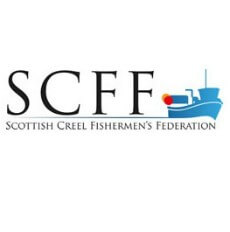 ist die nationale Handelsorganisation für Reusenfischerei. Diese traditionelle und nachhaltige Form der Schalentierfischerei ist für die Gemeinden an der schottischen Küste besonders bedeutend. LIFE heißt die 1200 Mitglieder von SCFF willkommen und freut sich auf eine gute Zusammenarbeit.
ist die nationale Handelsorganisation für Reusenfischerei. Diese traditionelle und nachhaltige Form der Schalentierfischerei ist für die Gemeinden an der schottischen Küste besonders bedeutend. LIFE heißt die 1200 Mitglieder von SCFF willkommen und freut sich auf eine gute Zusammenarbeit.
SPMLR vertritt nachhaltige, kleine Fischereibetriebe aus Languedoc Roussillon. Der unabhängige Berufsverb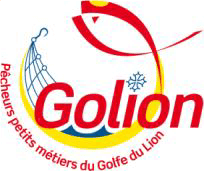 and kooperiert mit verschiedenen Institutionen und Verbänden. Außerdem verwaltet er das Golion Label (www.golion.fr), das die Öffentlichkeit über die Bedeutung der handwerklichen Fischerei und deren ausgezeichnete lokale und frische Produkte informiert. LIFE freut sich besonders die 150 Mitglieder von SPMLR, allesamt engagierte Fischer deren Arbeit nun auch auf EU- Ebene repräsentiert werden soll, willkommen zu heißen.
and kooperiert mit verschiedenen Institutionen und Verbänden. Außerdem verwaltet er das Golion Label (www.golion.fr), das die Öffentlichkeit über die Bedeutung der handwerklichen Fischerei und deren ausgezeichnete lokale und frische Produkte informiert. LIFE freut sich besonders die 150 Mitglieder von SPMLR, allesamt engagierte Fischer deren Arbeit nun auch auf EU- Ebene repräsentiert werden soll, willkommen zu heißen.
Dieser Newsletter zeigt nur einige unserer Tätigkeiten auf. LIFE Mitarbeiter im Vereinigten Königreich, Brüssel und Spanien beantworten außerdem Anfragen im Zusammenhang mit unserem Sektor und setzen sich für die Entwicklung politischer Maßnahmen, die nachhaltigen, kleinen Fischereibetrieben zugutekommen, ein.
Unsere regionalen Vorstandsmitglieder, die selbst als Fischer tätig sind, bemühen sich ebenso um die Förderung der handwerklichen Fischerei.
Sollten Sie mehr Informationen zu einem bestimmten Thema, einer Veranstaltung oder einem Projekt wünschen, zögern Sie nicht uns zu kontaktieren: communications@lifeplatform.eu